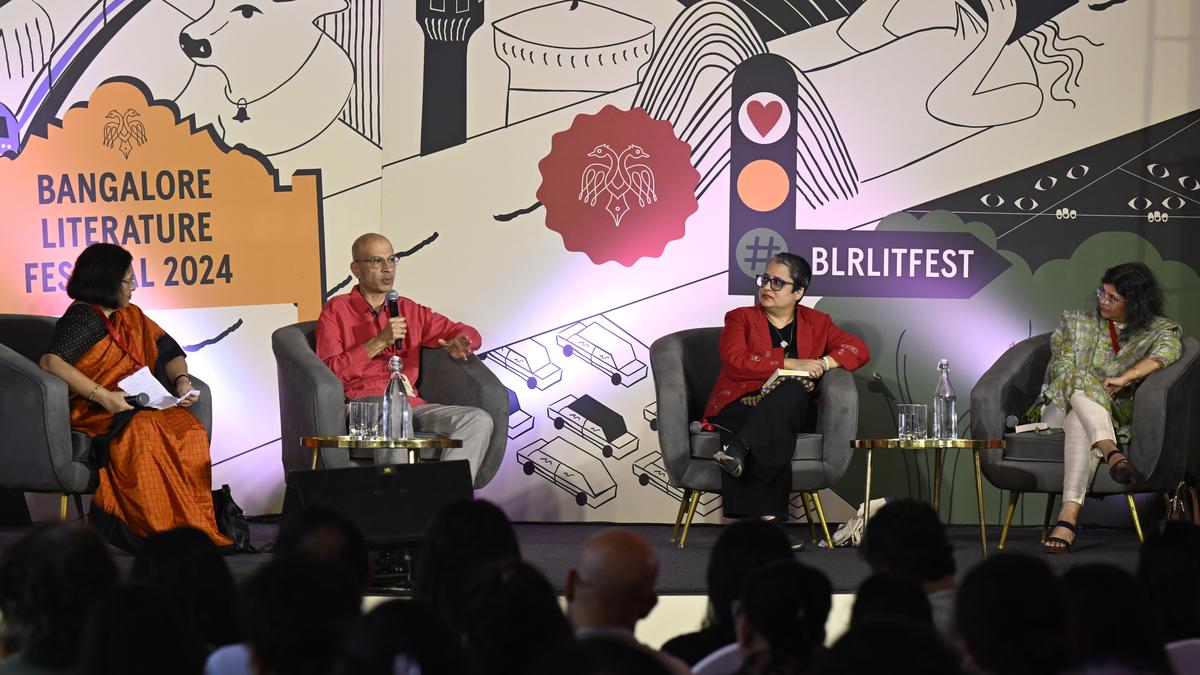
Sleuthing through Bengaluru: Crime writers unveil the city’s hidden narratives
The Hindu
For instance, ecologist and author Harini Nagendra’s The Bangalore Detectives Club series etches a semi-fictional history of the city, offering a peek into 1920s Bangalore (now Bengaluru). The novel revolves around the headstrong, saree-clad protagonist Kaveri, who moves to Bangalore to marry her doctor husband Ramu and commits to leading an unremarkable middle-class life in the city. Very soon, however, Kaveri faces a series of events that make her realise that with the right skills and knowing the right people, sleuthing can be done just as easily in a saree.
The tree-studded city of Bengaluru, not surprisingly, is a character in the stories of three of the city’s best-loved crime authors — Harini Nagendra, Harish Vasudevan, and Unmana.
In a conversation with writer Madhavi Mahadevan at the recently-concluded Bangalore Literature Festival, in a session titled The Ooru Files: Crime in the City, the trio spoke about their respective books and their (and their characters’) relationship with the city.
For instance, ecologist and author Harini Nagendra’s The Bangalore Detectives Club series etches a semi-fictional history of the city, offering a peek into 1920s Bangalore (now Bengaluru). The novel revolves around the headstrong, saree-clad protagonist Kaveri, who moves to Bangalore to marry her doctor husband Ramu and commits to leading an unremarkable middle-class life in the city. Very soon, however, Kaveri faces a series of events that make her realise that with the right skills and knowing the right people, sleuthing can be done just as easily in a saree.
Harini says she drew inspiration from women in her own family, incorporating exceptional acts like swimming in a saree into her narrative. Kaveri’s social status becomes her investigative asset, “she had to be both traditional and progressive” to flow in and out of British society seamlessly. By reimagining pivotal historical moments like the arrival of the Prince of Wales, the author weaves a story of fact, fiction, and fascination.
Revenge, retribution, and the redistribution of justice lie at the core of Harish Vasudevan’s debut novel Redemption. Set in 2007, Bangalore, a city slowly getting attuned to its technological revolution, the book follows a middle-class family of three, exploring the obscure and unsaid power dynamics that dictate human fate.
The novel’s protagonist is Archana Gowda, a simple, god-fearing housewife who suddenly finds herself accused of her husband’s murder and must negotiate the harsh realities of the justice system. The novel, says Harish, probes the murky themes of justice.
“I think there is a line in all of us, where, if crossed, we may consider picking up a stone,” he says, adding that though the novel is a work of fiction, its protagonist is loosely based on revelations from those working with female inmates.

The Karnataka government has drafted a comprehensive master plan for the integrated development of Kukke Subrahmanya temple, the State’s highest revenue-generating temple managed by the Hindu Religious Institutions and Charitable Endowments Department. The redevelopment initiative is estimated to cost around ₹254 crore and aims to enhance infrastructure and facilities for devotees.












